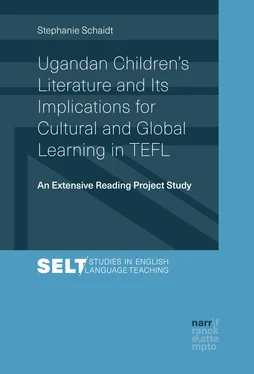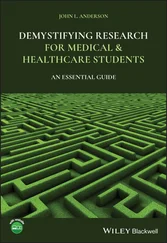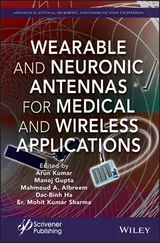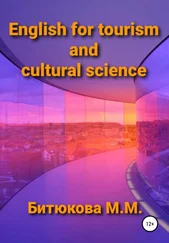Irrespective of these developments, literature still plays a comparably minor role at lower and intermediate levels of TEFL, up to today:
For the most part, language learners are not introduced to full-length texts in the EFL-literature classroom until they reach their final school year, at which point they read, and are examined on, one or two major and complex works. (Bland, 2013, p. 5)
At higher levels ( Oberstufe ), students mainly read and discuss canonical adult literature such as Fahrenheit 451 , Hamlet or, if anything by an African writer, novels like Things Fall Apart . In order to be able to deal with those complex texts and understand them thoroughly, students should be initiated to literature earlier; “postponing the ‘literary shock’ until the very advanced grades does not prove helpful” (Lütge, 2012a, p. 199). An apprenticeship in literary reading from lower levels can help students to gain the competencies they need to understand literary texts in a foreign language but also develop the love for literature and so introduce them to lifelong reading:
This issue of helping our students become lifelong readers by linking literature to their daily lives and world knowledge is not an issue which is only important for L1 learners – it also applies to L2 learners and can be enhanced and adapted from kindergarten onward through all grades and school types. (Burwitz-Melzer 2013, p. 56)
A prerequisite of successful work with literary texts at lower and intermediate levels is the selection of rich and attractive reading material. The majority of students in the teenage years are reluctant readers, particularly in a foreign language. To motivate students and enable them to discover that reading is actually interesting and enjoyable, age appropriateness has to be taken into consideration in the selection process of literary texts (Nünning, 1997, p. 7; Thaler, 2008b, p. 20). Reading literary texts written for adult readers in lower grades in which the students do not yet have the necessary language proficiency to understand complicated sentence structures and are cognitively not ready to deal with abstract themes, can be demotivating and increase students’ inhibitions about reading books in a foreign language.
Therefore, teachers and educators often resort to graded and simplified, i.e. shortened or adapted, reading material at lower and intermediate levels. Such texts are particularly written or adapted for the language class and can be used to introduce children to literature. Because of the simplification or adaptation they have undergone, they directly address the learners’ needs (see Hermes, 2007). However, they also have several drawbacks:
Badly simplified graded readers often lack the patterned language typical of much authentic literature – yet parallelism and easily noticed and memorable metaphorical language support language acquisition. With regard to intensive reading, graded readers are unsuitable as they are most often based on adult literature. Simplifying the language does not make the themes of literature for mature readers accessible to adolescent learners with an immature understanding of the world. (Bland, 2012b, p. 205)
Due to this, various scholars (Bland, 2013; Bland & Lütge, 2013; Hesse, 2009; O'Sullivan & Rösler, 2008, 2013) rather point to ‘authentic’1 children’s fiction as suitable reading material for the foreign language classroom. Authentic children’s texts are aimed at young people and usually deal with topics of childhood or adolescence. Furthermore, the language they make use of is not too elaborate. Therefore, texts of this kind often arouse interests of students at primary and lower secondary level and provide exciting and feasible reading material for them. Nevertheless, it has to be considered that since they are designed for a native speaking audience at a certain age, their linguistic level may be too difficult for the learners at the same age. Therefore, in the foreign language classroom texts are often used that address a slightly younger readership. There is usually a mismatch between the learners’ intellectual development and their linguistic competence in this context. This mismatch requires careful selection decisions in order not to injure the students’ sense of maturity.
3.2 (Children’s) Literature and Cultural and Global Learning
The potential of literature for learning about cultures has been emphasised by many scholars (Alter, 2015; Bredella, 1993, 1996; Burwitz-Melzer, 2003; Fäcke, 2006; Freitag-Hild, 2010a; Nünning & Surkamp, 2006; Surkamp & Nünning, 2009; Thaler, 2008b). Literary texts in general are considered to offer many opportunities for engaging with diversity. Sometimes scholars award children’s fiction particular potentials for cultural learning. According to Lütge (2013, p. 97) “[c]hildren’s literature often challenges and transcends the binary opposition of ‘self’ and ‘other’, thus providing an enormous educational potential that can be exploited for the foreign language classroom”. Depending on their theoretical background, the scholars in the field base their arguments on different perspectives.
In the 1990s, in foreign language literature didactics, scholars primarily argued from a hermeneutic stance. Bredella (1993) pointed to the important role literature plays in the process of understanding the other ( Fremdverstehen ; see Chapter 2.3). According to him, fiction teaches the reader to see the world from different perspectives. This happens in his view through a dialectic process in which the reader becomes aware of both similarities with and differences between ‘the self’ and ‘the other’. Various other scholars also argue similarly and emphasise the importance of Perspektivenwechsel [change of perspectives] and Perspektivenübernahme [adoption of perspectives] (Burwitz-Melzer, 2003; Freitag-Hild, 2010a; Nünning, 2001; Rauer, 1997; Schinschke, 1995; Schubert, 2013). As already discussed in Chapter 2.3, the argument that differences may be overcome through changes of perspectives is often, however, viewed rather critically (Eckerth & Wendt, 2003a; Fäcke, 2003, 2006; Hunfeld, 1991, 1992b). The concept of Fremdverstehen is considered to contribute to the perpetuation of dichotomies and to not take power hierarchies into account.
As of late, scholars increasingly translate postmodern or postcolonial thoughts into literature didactics. Wintersteiner (2006a, 2006b) laid the foundations for transcultural literary didactics in German didactics. Against the background of globalisation and postcolonialism, he pleads for a shift from a national education to education for a solidary global community. Transcultural literary didactics makes an aesthetic contribution to such an education, he argues:
Ziel transkultureller Literaturdidaktik ist es, einen spezifisch ästhetischen Beitrag zu einer Erziehung für eine solidarische Weltgesellschaft zu leisten. Sie begreift sich als Bestandteil globalen Lernens, mit Hinblick und unter Nutzung der besonderen Möglichkeiten der Literatur. Sie situiert sich im Rahmen eines Bildungskonzepts, das Differenz akzeptiert und auf ihr gründet, nicht im Sinne multikultureller Beliebigkeit, sondern bezogen auf ein universelles Wertsystem, das Respekt vor der Verschiedenheit, d.h. vor der Andersheit des Anderen, zum zentralen Programm macht und bereit ist, die notwendigen Auseinandersetzungen, die daraus resultieren, zu akzeptieren und zu führen. [It is the aim of transcultural literary didactics to provide a specifically aesthetic contribution to education for a solidary world society. It should be understood as a part of global learning with reference to and through the use of special possibilities provided by literature. It is located within an educational framework which accepts difference and is grounded in it, not in a sense of multicultural arbitrariness but with reference to a universal system of values that puts the respect for diversity, i.e. the otherness of the others, at the centre and is prepared to accept and lead the inevitably arising debates.] (2006a, p. 138; my translation)
Читать дальше












